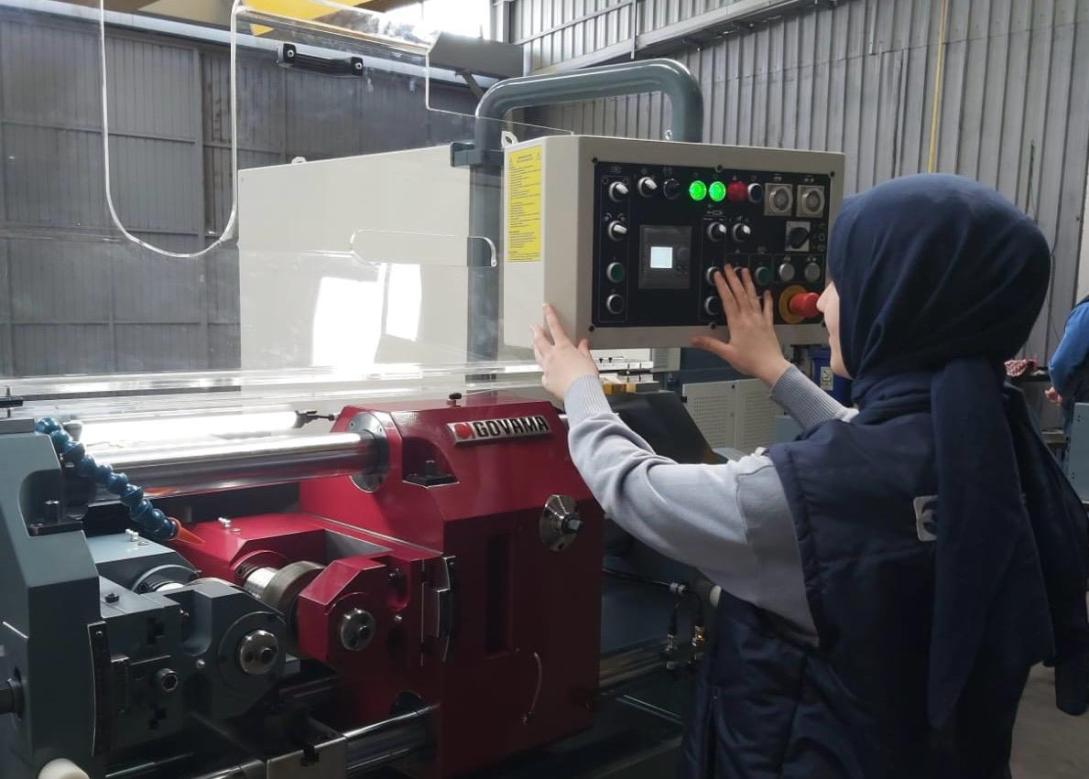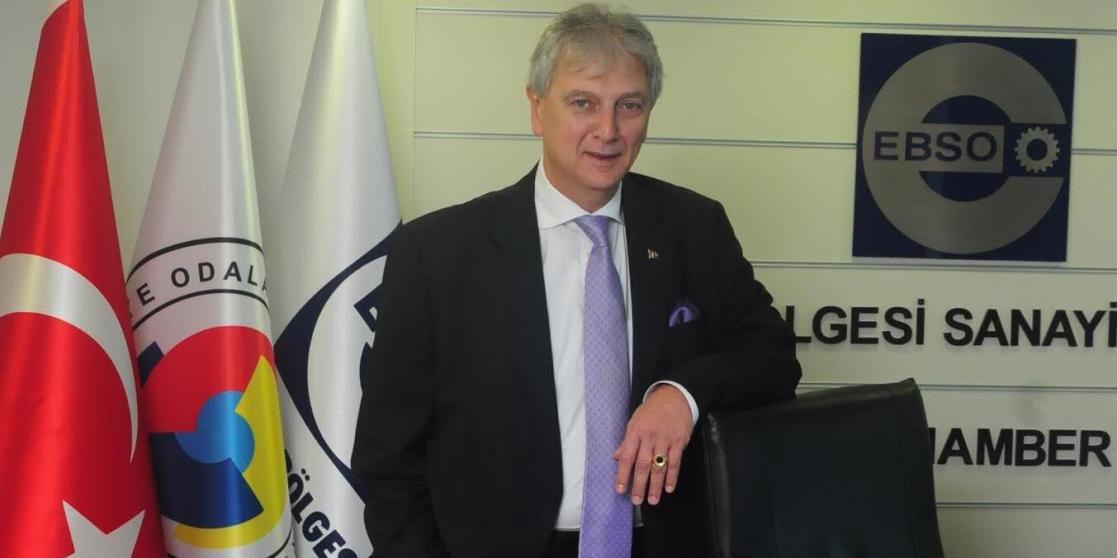Women are leading the way in the machinery sector

Sude followed her dreams and studied at Celal Bayar University’s Department of Mechanics in Manisa. There were only four females in the 94-students department, and among these four young women, Sude was the only one who insisted on working in the machinery field after graduation.
Sude is currently benefiting from the project ‘NEET Carries the Machinery Sector to the Future’ within the scope of the EU-funded Labour Market Support Program for Young People Not in Employment, Education or Training (NEETs). 75 students have engaged in the project, including 13 women. After completing the 5-weeks course, Sude is interning at a production facility. Contrary to her experiences at a previous workplace, she enjoys her time at the production facility and is keen on continuing working there after completing her internship.

EU
Sude Toprak has benefited from the project
Students satisfied with the project
Another young woman who benefited from the project is Semanur Koç. She graduated from Ege University’s Department of Mechatronics. She heard about the project from an acquaintance and subsequently applied. “I want to progress in the field of software. Women’s contributions should span from machinery to computers; there’s no field we shouldn’t explore,” she says. Her voice is full of determination and pride in her achievements.
Eda Durgut studied mechatronics at a vocational high school. She is reasonably satisfied with the project, saying: “Although it has been crowded, we have received useful, practical lessons as well as theoretical lessons. I want to progress in the field of machinery as a CNC* operator. Women are fully capable of performing any job that men can do. I think men are now used to witnessing women in every field,” she states.
[* Computer Numerical Control is a machine that is controlled via a computer.]
Teachers trained in Germany
Teachers also take part in the project carried out by the Aegean Region Chamber of Industry (EBSO). To teach students optimally, fifteen teachers have been trained in Stuttgart, Germany.
One of these teachers is Derya Senyerli: “I am also a mechanical engineer. I worked in the private sector for many years. Due to the gender perception regarding this profession, women in fields like ours may have to make more effort to prove their competencies. Now, I work at a technical high school. I am the only female teacher in my department. Moreover, I am the only female teacher involved in the project! I attach great importance to female students. I believe that women interested and talented in this field will successfully carry the sector into the future.”

EU
EBSO member companies plan to employ students who receive vocational qualification certificates
Increasing women’s role in the economy
EBSO Chairman Ender Yorgancılar reflects: “We take the words of our Great Leader Mustafa Kemal Atatürk: “A society that leaves its women behind is doomed to be backward” as our guide. We always attach great importance to being involved in projects that aim to increase the contribution of women to the economy. We have been delighted with the participation of women in this project. Our greatest wish is that our project will substantially contribute to women’s lives.”

EU
EBSO Chairman Ender Yorgancılar
The Head of the European Union Delegation to Türkiye, Ambassador Nikolaus Meyer-Landrut, notes the importance of gender equality in professional life: “The EU supports the empowerment of women in Türkiye and their participation in the Turkish labour force in all fields because the success of women is critical to peace, democracy, justice, and prosperity. We are delighted to see an increase in the number of women, especially in male-dominated fields. The participation of women in this employment project is higher than expected.”
About the project
The EU-funded project with a budget of € 325,000 aims to contribute to the employment of people aged 18 to 29 in the machinery technologies sector. Students are selected through a cooperative effort of the Izmir Metropolitan Municipality Vocational Factory and the Turkish Employment Agency (ISKUR). Training is provided at Konak Çınarlı Vocational and Technical Anatolian High School, which renovated its laboratory as part of the project. After trainings and internships, students receive a vocational qualification certificate. The plan is for EBSO member companies to employ students who obtain certificates.




